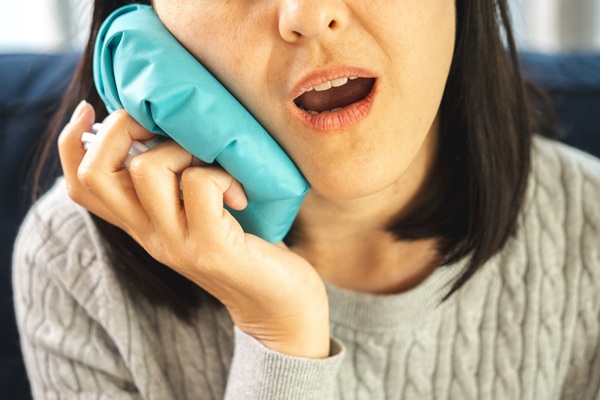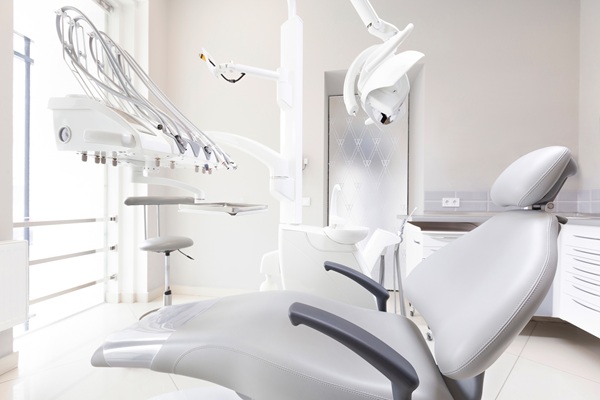FAQs About Oral Appliance Treatment for Sleep Apnea

Sleep apnea makes it difficult to stay asleep throughout the night and often leads to fatigue during the day, along with other negative health consequences. Fortunately, there is an effective way to treat sleep apnea with oral appliance treatment. This is a collection of common questions about oral appliance treatment for sleep apnea and their answers.
Common questions about oral appliance treatment
General dentists are often asked about the benefits of an oral appliance, how the treatment process works and what signs indicate the need for an oral appliance for sleep apnea. By learning more about these questions, you can decide if sleep apnea is appropriate for you.
What is an oral appliance for sleep apnea?
An oral appliance for sleep apnea refers to a device that is worn in the mouth while asleep to prevent the airway in the back of the throat from closing, which is the cause of obstructive sleep apnea (OSA). The two most common types of oral appliances are CPAP machines and mandibular devices.
CPAP machines involve a filter and humidifier and a mask. Mandibular advancement devices are becoming increasingly popular. They are similar to a nightguard, although they are strategically crafted to keep the back of the throat open by keeping the tongue and jaw in the proper position while asleep.
What are the benefits of an oral appliance?
Obstructive sleep apnea leads to notable health concerns, many of which derive from sleep deprivation. Oral appliance treatment allows for a better night of sleep each night. The benefits of oral appliance treatment include:
- Improved general health
- Better sleep each night
- Improved focus during the day
- Easy to use and travel with
- A better night of rest for your partner
Oral appliance treatment may also relieve common symptoms of obstructive sleep apnea, such as morning headaches and a lack of productivity during the day.
How do I get an oral appliance for sleep apnea?
Many dentists offer oral appliances for obstructive sleep apnea. During a consultation visit with a dentist to discuss sleep apnea treatment, they can go over all available treatment options, including mandibular advancement devices and CPAP machines. They can discuss the pros and cons of each available option and make a treatment recommendation based on the preferences and specific needs of the patient.
When should I visit the dentist for sleep apnea treatment?
If symptoms of obstructive sleep apnea become problematic, visiting a dentist who offers sleep apnea treatment is encouraged, especially if you have already tried a CPAP machine and not gotten the results that you desire. A dentist is more likely to recommend and provide a mandibular advancement device, which many patients find easier to use than a CPAP machine.
Learn more about sleep apnea treatment today
If you are looking for relief from sleep apnea, then get in touch with our friendly dental team by phone or email. We are glad to address your questions and arrange a time for you to visit with our team to discuss all available treatment solutions.
Are you considering sleep apnea treatment in the Johns Creek area? Get more information at https://parsonspointedentalcare.com.
Check out what others are saying about our dental services on Yelp: Sleep Apnea in Johns Creek, GA.
Recent Posts
Sleep apnea is a serious condition that many people suffer from. As modern medicine has evolved, there are now more options for treating it. Consulting with a dentist regarding sleep apnea is becoming popular because they have a few different treatment routes that patients can take. Dental sleep medicine is a special field that focuses on…
People of all ages can suffer from sleep apnea, but it is most common in adults over the age of 40. According to the National Sleep Foundation, over 18 million Americans suffer from this condition. In children, this is often caused by enlarged tonsils, which can obstruct a child's airway during sleep. In adults, males…
Going in for a dental checkup might not be at the top of your priority list, but it should be. There could be many reasons why you have not been to the dentist’s office for a year or longer. Life can get busy, or you may have fears or anxieties about these visits. Whatever has…
Preventive dentistry can protect your teeth and gums. Its main goal is to keep dental problems away. It also aims to detect any oral issue early to prevent it from worsening. Preventive dentistry clinics have different ways to help keep your dental health in top condition. If you want to know how preventive dentistry can…


